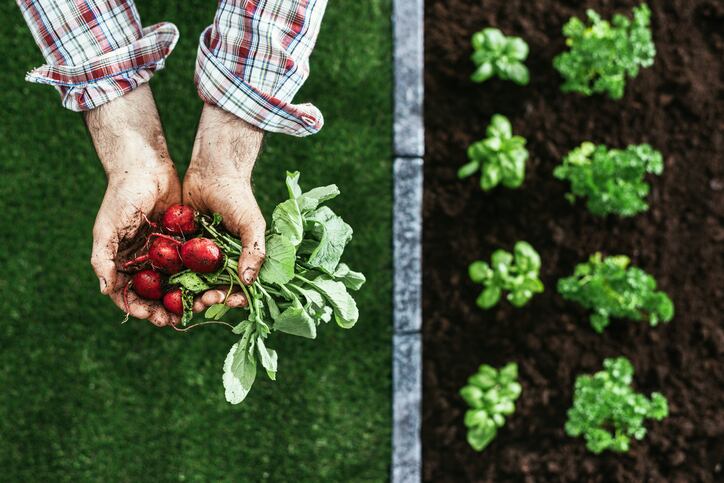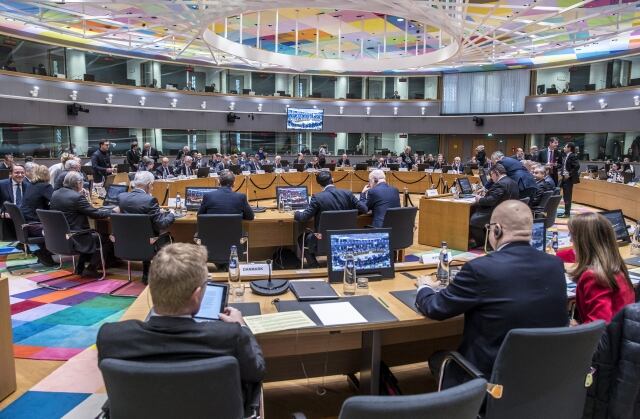MEPs backed the new EU law on organic production and labelling, with 466 votes in favour and 124 votes against, with 50 abstentions.
Delivering clarity
Martin Häusling, rapporteur for the European Parliament's Committee on Agriculture and Rural Development, helped steer the legislation through Parliament.
Speaking during a press conference in Brussels, Häusling stressed the importance of having “clear rules” and a harmonised European approach.
“The most important point is we are giving certainty to producers and more clarity to the sector and we have a more harmonised approach across the European Union,” the German representative for the Greens told reporters.
The European Commission issued a proposal on organic regulations five years ago. However, Häusling said that the deal hammered out by MEPs goes further than these initial proposals in an attempt to meet consumer expectations on organic production standards. “We have achieved a substantial improvement to give greater certainty to consumers,” he noted.
Beyond pesticides: soil, seeds and welfare

The original proposals put forward by the Commission focused primarily on regulating the presence of pesticides in organic products. According to Häusling, however, consumer definitions of organic are broader than this, taking in issues like animal welfare, soil usage and the sourcing of seeds.
“The Commission’s proposal from five years ago was very distant from what we achieved. The proposal was criticised by the sector. Regulation meant organic meant there were no pesticides in it and that wasn’t enough. We managed to get that improved. There is a clearer definition of organic. It is about more than not having pesticides. It is about the soil, how animals are treated, and how we produce foodstuffs.”
On animal husbandry, the MEP said improvements on animal protection had been secured. “Not as much as we would have liked but on a number of important points. You can no longer tail pigs, chop off their tails. You can’t remove the eyes of other animals. For chickens and hens one country – France – wanted to allow the clipping of the beaks on chickens…. That can’t be done... There is no grounds to fear that the conditions of animals will be worsened by the organic regulation.”
European politicians also insisted that organic farming is “based on the soil” and resisted a “tendency to be a bit more flexible on this”, Häusling suggested. The new rules reject the notion that soil free systems, such as hydroponics, can produce organic yields.
On seeds, MEPs backed proposals to extend various national regulations that require the use of organic seeds in organic farming. Derogations allowing the use of conventional seeds and animals in organic production should expire in 2035. At the same time, the supply of organic seeds and animals needs to increase, MEPs suggested.
Monitoring the supply chain
A new system of risk-based checks will be introduced throughout the organic supply chain. These will be carried out annually. If a producer passes the inspections for three years in a row, inspections will be carried out every other year.
“Monitoring will increase consumer certainty,” Häusling predicted. “There will be a check on the farm. There will be no other kind of agriculture that is checked as stringently as organic farming.”
Tightening import rules
“One important objective was imports,” Häusling revealed. “We had 64 standards for imports. Now we will have one based on the European regulation.”
Häusling estimated that over 50% of organic products are imported to the EU and “spot checks” to monitor standards will be extended to countries where the EU does not have a bi-lateral agreement on organic equivalency.
“We will have to carry out on the spot checks. That will have to increase in comparison to the rate we have been doing it now because the European consumer feels that is very important. We will have to make sure that we put in place good proposals that ensure we are carrying out effective controls because this is vital for the EU to ensure we have a good basis for mutual recognition.”
He estimated that 90% of products likely to be subject to direct EU monitoring come from neighbouring countries in the east of Europe, which are big exporters of organic grains.
“The Commission, in drafting the legislation, is concerned that farms in Ukraine or in Azerbaijan are subject to the same arrangements, rules, restrictions and checks as farms in Germany, France or Poland. So, the Commission has inter alia this responsibility to ensure arrangements are put in place and enforced so we have quality guarantees.”
Boosting European organic production
In 2016, organic land represented 6.7% of EU agriculture land, with seven EU Member States exceeding 10%.
Organic retail sales amounted to €30.7bn, with an annual growth of 12%.
The European Parliament also put its weight behind a series of measures designed to support the development of organic production within Europe.
“Mixed” farms that produce both organic and conventional produce will allowed, on the condition that the two activities are appropriately segregated. This will support farmers making the conversion to organic, MEPs suggested.
Likewise, regulators hope to make it more cost effective for small and medium-sized farmers to convert to organic production. Proposals include the authorisation of group certifications, which would save smaller farmers time and money in the organic certification process.
These measures, it is hoped, will allow producers to tap into the expanding consumer market for organic items in Europe. “We have an ever growing market [for organic products]. We are talking two figure growth in terms of turnover but also the number of [organic] holdings themselves,” the German MEP stressed.
Moving to implementation

Organic producers association IFOAM EU said that it welcomes the “huge effort” to strengthen the European Commission’s 2014 legislative proposal, with the successful implementation of “several improvements”.
However, the organisation also suggested that a number of points require clarification to “remove obstacles” for future implementation. This, IFOAM EU suggested, will require EU institutions and Member States to work closely with the organic sector.
“The impressive growth of organics is already a success story, but organic production has the potential to trigger a deeper transformation of European food and farming and to bring many more benefits to society, producers and the environment,” said Eduardo Cuoco, IFOAM EU director. “The development of organic food and farming should now be prioritised in the EU Multiannual Financial Framework.”
Häusling was eager to reassure organic producers that they will be consulted in the development of implementation legislation.
The regulation goes back to the council in May and then a series of implementation and delegation acts will be developed. “The Commission has assured us they are going to work with us and the associations so there is no need to fear something else will be sprung on people,” he concluded.
